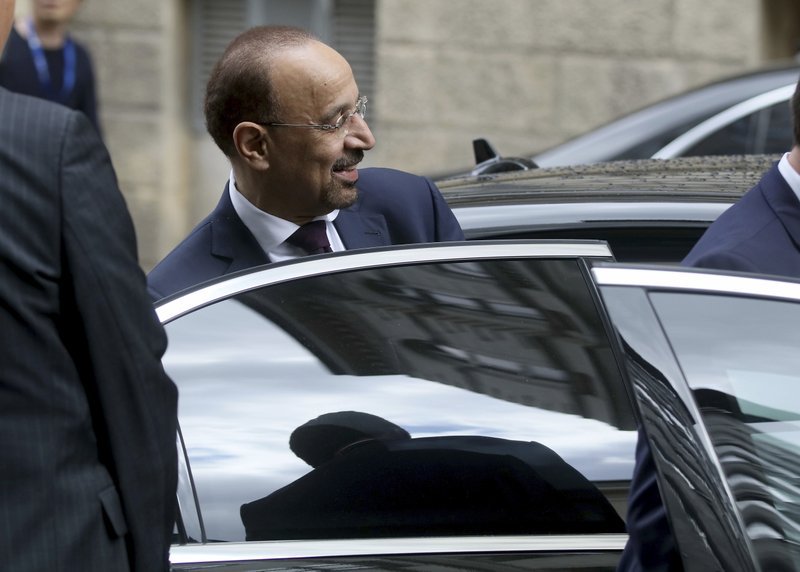VIENNA -- OPEC countries and other oil producers including Russia support a proposed extension of last year's production cut to shore up crude prices.
Members of the cartel are scheduled to meet today to consider the proposal.
The output reductions have been in effect since November, when the 13-country Organization of the Petroleum Exporting Countries agreed to cut production by 1.2 million barrels a day, while non-OPEC countries chipped in with a further 600,000-barrel reduction. That deal, which has helped push up oil prices, expires at the end of June.
Saudi Energy Minister Khalid al-Falih noted a "trend" among participants to prolong the cuts for nine months. OPEC Secretary General Mohammad Barkindo said there is "growing consensus" for an extension.
Iraqi oil minister Jabbar Ali Hussein Al-Luiebi told reporters there was already apparent unanimous consent "to continue the cut that we had in November." Bijan Namdar Zanganeh, his Iraqi counterpart, said: "We support the proposal for nine months."
A committee of all nations participating in the cuts also recommended a nine-month extension on Wednesday. Non-OPEC countries that are part of the deal will attend the meeting, including Russia's Energy Minister Alexander Novak.
In the longer term, there are concerns among OPEC countries that higher oil prices may end up being counterproductive as they encourage U.S. shale gas producers to re-enter the market -- a development that could weigh on oil prices.
Despite last year's production cuts, oil prices have risen by less than OPEC expected. At about $50 a barrel, benchmark crude is up from the sub-$30 levels reached in early 2016. Still, prices are around half the levels reached in 2014.
Business on 05/25/2017
